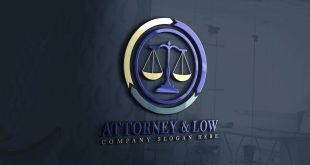Legal Counsel Associates
In the intricate fabric of the business world, legal counsel associates are the weavers, ensuring that every thread of a company’s operations complies with the complex tapestry of laws and regulations. Within this realm, the expertise of Legal Counsel Associates serves as a guiding beacon, navigating through legal intricacies to safeguard the interests of their clients or employers.
1. The Role of Legal Counsel Associates
Defining Legal Counsel Associates
Legal counsel associates are legal professionals who provide comprehensive legal advice and support to businesses and organizations.
Responsibilities and Duties
Legal counsel associates are tasked with various responsibilities, including contract review, legal research, risk management, and client communication.
Key Skills Required
Proficiency in legal research, analytical thinking, communication skills, negotiation tactics, and ethical reasoning are essential for legal counsel associates.
Legal Counsel Associates are legal professionals tasked with providing comprehensive legal advice and support to businesses and organizations. They act as the first line of defense against legal challenges, offering guidance on a myriad of legal issues spanning from contract negotiations to compliance matters. In essence, they serve as the legal backbone of an organization, ensuring that all actions taken are within the bounds of the law.
2. Education and Qualifications
Academic Requirements
Obtaining a Juris Doctor (J.D.) degree from an accredited law school is typically required to become a legal counsel associate.
Specialized Training
Specialized training in areas such as corporate law, intellectual property, or labor law can enhance the qualifications of legal counsel associates.
Certifications and Licensing
Legal counsel associates must obtain licensure from the relevant state bar association to practice law.
Becoming a Legal Counsel Associate typically requires a robust educational background in law. Most professionals in this field hold a Juris Doctor (J.D.) degree from an accredited law school. Additionally, specialized training in areas such as corporate law, intellectual property, or labor law can enhance one’s qualifications. Obtaining licensure from the relevant state bar association is also a prerequisite for practicing law.
3. Career Path and Progression
Entry-Level Positions
Legal interns or junior associates often start their careers in entry-level positions within law firms or corporate legal departments.
Advancement Opportunities
With experience and proficiency, legal counsel associates may advance to positions of greater responsibility, such as Senior Counsel or Legal Director.
Potential Career Trajectories
Career trajectories for legal counsel associates can vary widely based on individual interests and opportunities in both law firms and corporate settings.
The journey of a Legal Counsel Associate often begins in entry-level positions such as legal interns or junior associates. As they gain experience and demonstrate proficiency in their roles, they may advance to positions of greater responsibility, such as Senior Counsel or Legal Director. Career trajectories can vary widely based on individual interests, with opportunities available in both law firms and corporate legal departments.
4. Legal Research and Analysis
Conducting Legal Research
Legal counsel associates conduct thorough research on case law, statutes, and regulations to provide well-founded legal opinions and strategies.
Analyzing Case Precedents
Analyzing case precedents helps legal counsel associates identify relevant legal principles and apply them to current legal issues.
Interpreting Statutes and Regulations
Legal counsel associates interpret statutes and regulations to ensure compliance with legal requirements and mitigate potential risks.
A cornerstone of the Legal Counsel Associate’s role is the ability to conduct thorough legal research and analysis. This entails sifting through case law, statutes, and regulations to provide well-founded legal opinions and strategies. By staying abreast of legal developments and precedents, Legal Counsel Associates equip themselves to address a diverse range of legal issues effectively.
5. Contract Review and Drafting
Reviewing Contracts for Legal Compliance
Legal counsel associates review contractual terms and conditions to ensure compliance with legal requirements and mitigate potential risks.
Drafting Legal Documents
Legal counsel associates draft legal documents, including contracts, agreements, and legal opinions, to accurately reflect the intentions of their clients.
Negotiation Strategies
Legal counsel associates employ negotiation tactics to secure favorable terms for their clients during contract negotiations.
6. Risk Management and Compliance
Identifying Legal Risks
Legal counsel associates identify potential legal risks that may arise in the course of business operations.
Developing Compliance Programs
Legal counsel associates develop compliance programs tailored to the specific needs of the organization to mitigate legal risks.
Mitigation Strategies
Legal counsel associates implement mitigation strategies to address legal risks effectively and minimize potential liabilities and litigation.
Another critical aspect of the role involves reviewing and drafting contracts. Legal Counsel Associates meticulously examine contractual terms and conditions to ensure compliance with legal requirements and mitigate potential risks. Additionally, they play a pivotal role in negotiating agreements on behalf of their clients, employing negotiation tactics to secure favorable terms.
7. Client Communication and Relationship Management
Identifying Legal Risks
Legal counsel associates identify potential legal risks that may arise in the course of business operations.
Developing Compliance Programs
Legal counsel associates develop compliance programs tailored to the specific needs of the organization to mitigate legal risks.
Mitigation Strategies
Legal counsel associates implement mitigation strategies to address legal risks effectively and minimize potential liabilities and litigation.
Effective communication skills are paramount for Legal Counsel Associates in their interactions with clients. Whether explaining complex legal concepts or providing updates on ongoing matters, clear and concise communication fosters trust and transparency. Building strong client relationships is equally essential, as it enables Legal Counsel Associates to better understand their clients’ needs and provide tailored legal solutions.
8. Ethical Considerations
Upholding Ethical Standards
Legal counsel associates adhere to the highest ethical standards, including avoiding conflicts of interest, maintaining client confidentiality, and upholding professional codes of conduct.
Conflicts of Interest
Legal counsel associates carefully navigate potential conflicts of interest to ensure that their representation remains impartial and ethical.
Professional Responsibility
Legal counsel associates prioritize professional responsibility in their practice, recognizing their duty to act in the best interests of their clients while upholding the integrity of the legal profession.
Upholding ethical standards is a cornerstone of the legal profession, and Legal Counsel Associates are held to the highest ethical standards. This includes avoiding conflicts of interest, maintaining client confidentiality, and adhering to professional codes of conduct. By prioritizing ethical considerations in their practice, Legal Counsel Associates uphold the integrity of the legal profession.
Role and Responsibilities of Legal Counsel Associates:
Legal counsel associates play a multifaceted role in providing crucial legal support to businesses, organizations, and individuals. Their responsibilities encompass a wide range of tasks aimed at ensuring legal compliance, managing risks, and protecting the interests of their clients.
Within this role, legal counsel associates are tasked with conducting comprehensive legal research to stay abreast of relevant laws, regulations, and judicial precedents. This research serves as the foundation for providing informed legal advice to clients and developing effective legal strategies.
Moreover, legal counsel associates are often involved in drafting and reviewing various legal documents, including contracts, agreements, and legal opinions. They meticulously examine contractual terms to ensure compliance with legal requirements and mitigate potential risks that may arise from ambiguous language or loopholes.
In addition to their research and drafting duties, legal counsel associates play a pivotal role in advising clients on a wide array of legal matters, ranging from corporate governance and intellectual property issues to employment law and regulatory compliance. They serve as trusted advisors, offering guidance on legal implications and potential courses of action to help clients make informed decisions.
Furthermore, legal counsel associates are responsible for managing legal risks within their organizations or for their clients. This involves identifying potential legal risks, developing proactive risk mitigation strategies, and implementing compliance programs tailored to the specific needs of the business or organization. By addressing legal risks early on, legal counsel associates help safeguard their clients from potential liabilities and litigation.
Overall, the role of legal counsel associates is dynamic and multifaceted, requiring a combination of legal expertise, analytical skills, and strategic thinking to navigate complex legal challenges effectively.
Qualifications and Career Path for Legal Counsel Associates:
Becoming a legal counsel associate typically requires a robust educational background and specialized training in the field of law. Most professionals in this role hold a Juris Doctor (J.D.) degree from an accredited law school, which provides them with a comprehensive understanding of legal principles and procedures. Additionally, obtaining licensure from the relevant state bar association is a prerequisite for practicing law and assuming the role of a legal counsel associate.
While academic qualifications form the foundation of a legal career, practical experience and professional development are also essential for aspiring legal counsel associates. Many individuals gain valuable experience through internships, clerkships, or entry-level positions within law firms, government agencies, or corporate legal departments.
As legal counsel associates progress in their careers, they may have opportunities to specialize in particular areas of law, such as corporate law, intellectual property, litigation, or regulatory compliance. Specialized training, certifications, and continuing education programs can further enhance their qualifications and expertise in their chosen field.
Career advancement for legal counsel associates often follows a structured path, starting with entry-level positions such as legal interns or junior associates and progressing to roles of increasing responsibility, such as Senior Counsel or Legal Director. Advancement opportunities may vary depending on factors such as performance, experience, and the size and structure of the organization.
Ultimately, the career path for legal counsel associates is diverse and dynamic, offering opportunities for professional growth, specialization, and leadership within the legal profession. By continually honing their skills, expanding their knowledge base, and staying abreast of legal developments, legal counsel associates can build rewarding and successful careers in the field of law.
Conclusion
In the dynamic landscape of business, the expertise of Legal Counsel Associates is indispensable. As guardians of legal compliance and risk management, they play a pivotal role in ensuring the smooth functioning of organizations across industries. By mastering the intricacies of the law and adhering to ethical principles, Legal Counsel Associates navigate the complex terrain of legal challenges with finesse and integrity.
 DoramasQueen
DoramasQueen


